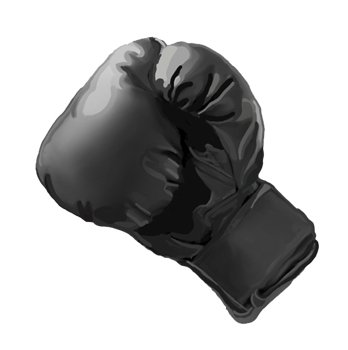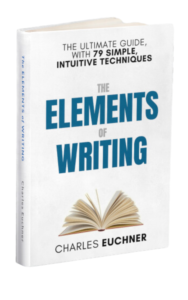 Favorites
Favorites
- How the March on Washington transformed America: Looking back on the 60th anniversary here and here. With more reflections here, here, here, here, and here (start at page 50).
- Puzzling the Brain: Simple line drawings can transform the brain–and help heal traumatic injury.
- How exercise sparks learning: Neurologist John Ratey’s research on jazzing the brain.
- Woodrow Wilson’s failed campaign for the League of Nations … and his “bookend” relationship with Donald Trump (here).
- The 3.5 percent solution: How getting bodies on the streets–lots of them–can transform politics.
- The most important person you don’t know: Gene Sharp and the power of nonviolent action.
- In the clearing stands a boxer: The rise, fall, and redemption of Gerry Cooney.
- The other guy’s March on Washington book: Background on the “greatest demonstration for freedom in our nation’s history.”
- Malcolm Gladwell’s rejection letter: Sorry, dude, it’s lazy, sloppy, and incoherent.
- Steven Pinker whiffs: MIT’s rock star linguist doesn’t score with his writing guide.
- Landmark: Looking back at the Lau bilingual education case, which established the right to equal education opportunity for nonnative English speaking students.
- The first woman to run for president: It wasn’t Hillary, or even Shirley Chisholm.
On Education
- Writing to Read: Kids write stories even before learning to read
- The 0.1 percent solution: Why mayoral control of public schools doesn’t do the job
- How children learn: It’s not by pressuring and pummeling them
- Cheating 2.0: How technology fuels an arms race of cheaters and enforcers
- Dropping the ball: The failure of physical education
- The brain game: Education as a battle for global growth and dominance
- Seymour Papert’s microworld: An early computer visionary in education
On Politics and Policy
- The NBA’s primary answer: Organize the nominating system like the draft.
- The Unsinkable Marie Wilson: How a feminist icon plotted a woman’s rise to the White House.
- Perilous moves: Russian chess master Garry Kasparov faces the toughest king.
- Squeaky wheels: The NIMBY threat to wind farms in Massachusetts.
- First, No: How saying ‘No’ often gets you to “Yes’ faster.
- The limits of stimulus: Obama’s shovel-ready projects weren’t always shovel-ready.
- Nobody Turn Me Around: Excerpts from the book about the 1963 March on Washington.
- Minute by minute: How the Educational Radio Network covered the March on Washington.
- Where is Greater Boston? Understanding Boston’s evolving identity (see chapter 1).
- Ins and outs of politics in Massachusetts: How this Byzantine system works, or not (see chapter 1).
- Heart of the City: How Boston’s neglected neighborhoods could experience a Renaissance.
Cities and space
- Come together: Why the building industry needs consolidation.
- New York Works: A report detailing strategies to create 100,000 new middle-class jobs in New York City.
- A strategy for middle-class jobs: Focus on the hopeless cases (image)
- Scaling up: New York is a haven for small businesses. But why don’t those businesses grow faster?
- ‘If I can make it there . . .’ Can manufacturing survive in New York City?
- ‘No Walking‘: Why kids don’t walk to school any more.
- Alexander the Great: The genius of architect Christopher Alexander.
- Ring around the city: Can Boston build a circumferential transit system?
- Where is Greater Boston? Reflections on the phenomenon of the Hub.
Sports
- Sweet Caroline: The long relationship between baseball and music.
- The longest game: When Red Sox and Orioles prospects played 33 innings.
- Going global: The NBA’s plan to make basketball the world sport.
- Baseball’s Ritilin addiction: Greenies are out, prescriptions are in.
- Finley’s work: Outfielder Steve Finley’s secret to health and longevity.
- Ivy jock power: Could Harvard, Yale et al., reclaim greatness on the field and court?
- Take me out to ye olde ball game: baseball the way they played in the 1800s.
- Brotherly love: Non-Hall of Fame ballplayers appreciate their more accomplished sibs.
The Lit’ry Life
- The Year of Reading Dangerously: Andrew Miller’s memoir is a one-trick pony.
- Once Upon a Time: Fairy tales, Marina Warner shows, use unreality to connect us to reality.
- The Innovators: Real genius, Walter Isaacson shows in this history of the computer, comes in teams.
- The Brain’s Way of Healing: The brain can heal just about everything, Norman Doidge shows, if we can take care of it.
- How exercise sparks learning: Neurologist John Ratey’s research on jazzing the brain.
- The Might Pinker has struck out: Steven Pinker could have been a contender, but instead write a mess of a writing guide.
- Get sticky: If you’re a pol or a Mad Man, here are tips for making your message stick.
- Perilous moves: Russian chess master Garry Kasparov faces the toughest king.
- Squeaky wheels: The NIMBY threat to wind farms in Massachusetts.
- First, No: How saying ‘No’ often gets you to “Yes” faster.
Reports
- Scaling up: New York is a haven for small businesses. But why don’t those businesses grow faster?
- ‘If I can make it there . . .’ Can manufacturing survive in New York City?
- Getting Home: Increase housing supply by removing unnecessary regulatory burdens.
- Ring around the city: Can Boston build a circumferential transit system?
- Where is Greater Boston? Reflections on the phenomenon of the Hub.
Miscellany
- Falling man: The physics of surviving a fall off a building.
- Hello, out there! Scientists explain reports of UFOs.

